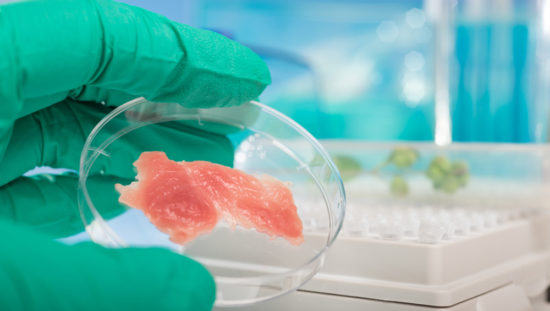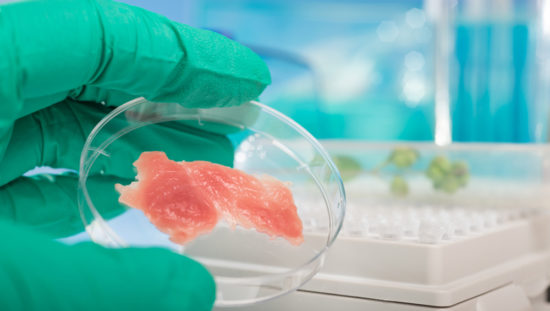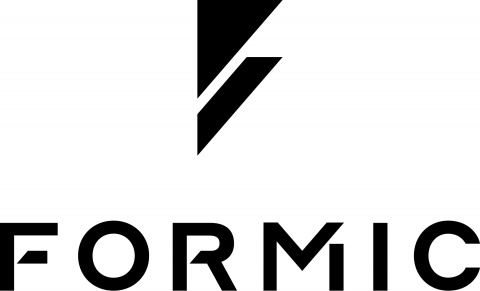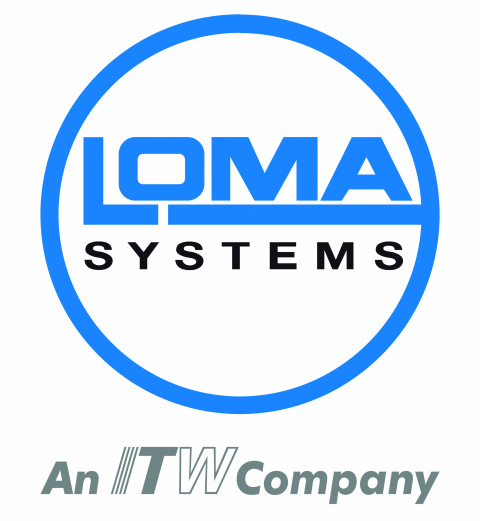

A second state law banning cell-grown meat is being challenged in federal court.
The Institute for Justice (IJ), in collaboration with startups Wildtype and UPSIDE Foods, is suing Texas in an effort to strike down the newly enacted ban on the sale of cultivated meat in the Lone Star State.
IJ and UPSIDE Foods are also the plaintiffs in a lawsuit against Florida, which enacted a similar ban.
The latest case was filed in the U.S. District Court for the Western District of Texas. IJ/UPSIDE argues that Texas’s law, SB 261, is nothing more than unconstitutional economic protectionism.
“For the same reason California cannot ban Texas beef in California, Texas cannot ban salmon or chicken from California,” said Uma Valeti, CEO and founder of UPSIDE Foods. “Texans deserve the freedom to decide for themselves what to eat without politicians choosing for them.”
In the filing, a preliminary injunction is sought to block Texas from enforcing SB 261 against Wildtype and UPSIDE, so both companies have the option of making their products available to willing Texas consumers while the case proceeds. IJ was not able to obtain a preliminary injunction in the Florida litigation.
“Texas has always been a state with a ‘live-and-let-live’ mentality — especially when it comes to the kitchen,” said IJ senior attorney Paul Sherman. “No one is forcing Texans to eat anything they don’t want. But at the same time, the government shouldn’t prevent Texans from eating something they do want.”
Texas Gov. Greg Abbott signed SB 261 into law on June 20. The law, which took effect on September 1, 2025, imposes a total ban on the sale of cultivated meat in the state of Texas. Violations carry steep penalties, including fines of up to $25,000 per day and even jail time.
Wildtype and UPSIDE Foods are two of a handful of so-called alt-meat companies approved under the joint regulatory authority of the Food and Drug Administration and the U.S. Department of Agriculture.
“We just want Texans to have a taste and make up their own minds,” said Justin Kolbeck, co-founder and CEO of Wildtype.
The lawsuit challenges Texas’s ban under two provisions of the U.S. Constitution. First, the Commerce Clause prohibits states from enacting protectionist measures that discriminate against businesses from other states. Second, the Supremacy Clause bars states from enacting laws that conflict with federal law.
A bench trial was scheduled for UPSIDE v. Florida for Feb. 17, 2026, on narrower grounds. That date was pulled back, however, with Judge Mark E. Walker planning to reset the trial date once the court rules on any forthcoming motions for summary judgment, which are now due on March 13, 2026. Both sides have until Feb. 24, 2026, to complete all fact and expert discovery.
Other state laws adopted this year that seek to regulate on ban cell-cultured products include;
Montana’s HB 401 (Chap. No. 276-2025) addresses the sale of lab-grown meat. The bill prohibits the sale or distribution of cell-cultured meats. It provides that a retail food establishment that sells or distributes cell-cultured meat products is subject to disciplinary action
North Dakota’s HB 1151 (Chap. No. 503-2025) deals with cell-cultured proteins. The bill authorizes a legislative management study on the regulation of cell-cultured proteins, including an analysis of litigation in other states, the regulatory landscape, the impacts on partners, and the feasibility of adopting a prohibition on cell-cultured proteins in the state.
South Carolina enacted SB 103 (Act 14-2025), which pertains to the labeling or misrepresentation of products derived from cell-cultured meats and requires labeling of cell-cultivated food products.
South Dakota’s HB 1022 (Chap. No. 168-2025) addresses cell-cultivated proteins. The bill prohibits the misbranding of any carcass, part thereof, or meat food product of any cell-cultured protein product. A label is false or misleading if it contains any cell-cultured proteins and does not clearly state prominently and conspicuously the words “cell-cultured” or “lab-grown” in a type of uniform size and prominence immediately adjacent to the name of the food on the label.
Utah’s HB 138 (Chap. No. 79-2025) requires labeling of food containing cultivated meat products and the labeling of food containing plant or insect-based meat substitutes. The bill provides that a food establishment shall notify the Department of Agriculture and Food whether the food establishment plans to sell, hold, offer for sale, or distribute a cultivated meat product or a plant or insect-based meat substitute.
(To sign up for a free subscription to Food Safety News, click here.)
















